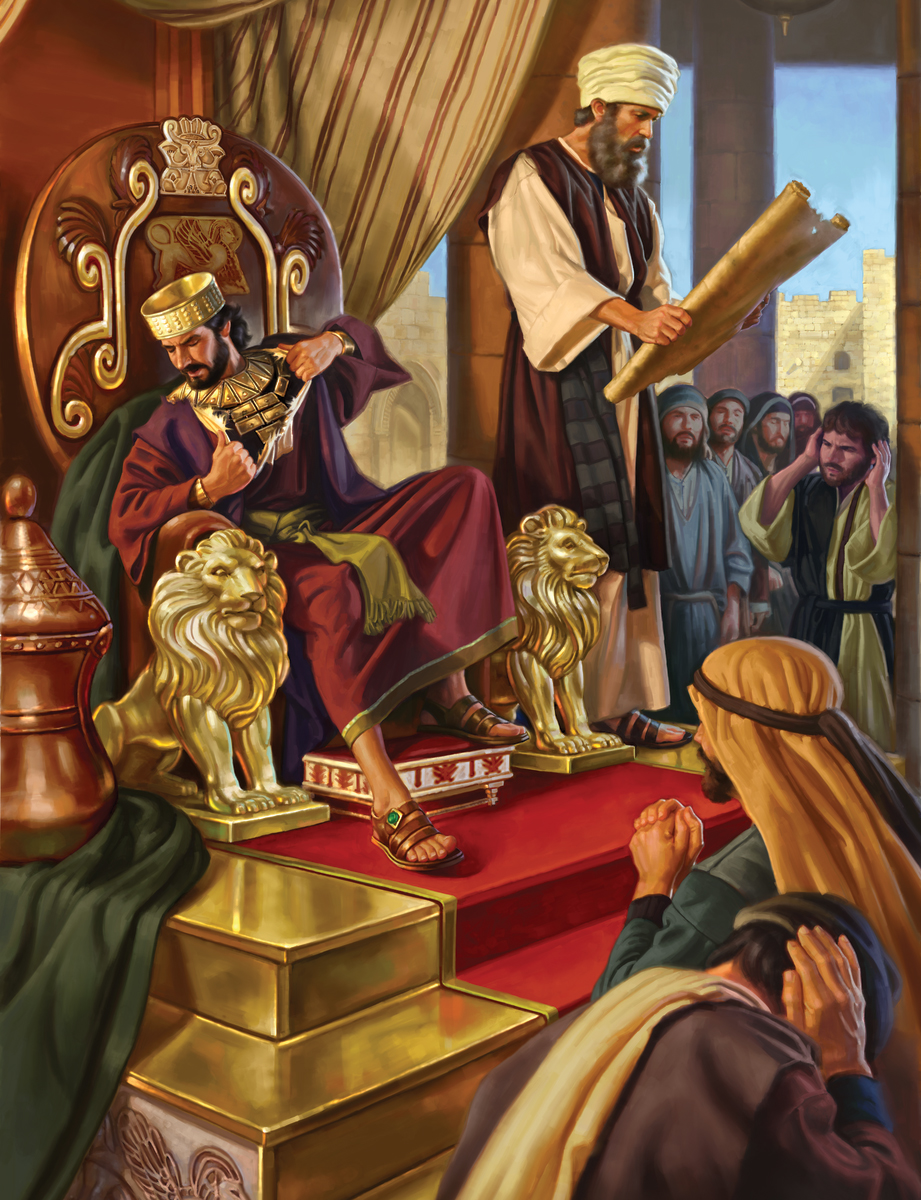The text for this lesson is 2 Kings 22:1–20.
Key Point
- Faithful listening to the Word of God revitalizes God’s people.
- Law: Neglect of the Word of God leads to discipline and destruction.
- Gospel: Through His Holy Word, God grants His children faith, favor, and blessing.
Discussion Points
- Josiah ascends to the throne after the two most evil kings in Judah’s history. Josiah’s grandfather Manasseh had thoroughly corrupted the country, setting up altars to all kinds of gods, not only in various high places but also in the Lord’s temple. Manasseh sacrificed his own son and regularly engaged mediums. Over a fifty-five-year reign, he led Judah “to do more evil than the nations had done whom the Lord destroyed before the people of Israel” (2 Kings 21:9). Because of Manasseh, the Lord committed Himself to giving Judah over to foreign conquest and sending them into exile (21:10–15). Manasseh’s son Amon ruled only two years, but “walked in all the way in which his father walked” (21:21). Josiah became king at age 8, facing a difficult spiritual situation. Nevertheless, probably due to the careful tutelage of faithful guardians, Josiah learned to walk in the way of the Lord (22:1–2). The Word of God remains powerful, even in the face of entrenched adversity.
- We are told in 2 Chronicles that at a young age, Josiah was already beginning his reforms, tearing down the high places and altars to false gods. Going throughout the whole country, he purged Judah of the structures and institutions that supported false worship (34:3–7). Not until age 26, then, was he able to turn his attention to repairing the temple and restoring true worship. It is possible that giving to the temple increased during the early years of restoration, so that after only ten years, Josiah had enough money to pay for repairs (2 Kings 22:4). The offering chest that was established by King Jehoash two centuries earlier (12:9–16) was now used by Josiah for funding the repairs.
- After attention is given to the temple, the Book of the Law is discovered by the high priest Hilkiah. From the description of the situation, it appears that the book was utterly neglected and perhaps even forgotten, stashed in the treasury chest since before King Manasseh’s reign (2 Chronicles 34:14). We are not told the exact contents of the Book of the Law, although this term and similar ones are used for Moses’ writings, so it probably refers to the writing of the Pentateuch.
- When Josiah hears the Law read to him, he responds with repentance, realizing that the nation has long neglected the covenant with the Lord. Yet, Josiah does not lose heart; he seeks the mercy of the Lord by inquiring for further direction. The Lord repeats the punishment He spoke against Manasseh, declaring that Judah will be destroyed. However, because Josiah heard the Word with repentance and faith, the destruction of Judah would be delayed until after his reign.
- This narrative shows how the Lord is slow to bring punishment but quick to show mercy. For fifty-five years, Manasseh blasphemed against God, yet God delayed punishment. Yet, with Josiah’s simple repentance brought through God’s Word, God immediately stays His hand of destruction. It is the same for us. God long delays to bring punishment so that His Word may yet have an effect to bring us to repentance and faith. And as soon as He graciously brings us to faith through His Word, He forgoes the punishment.






